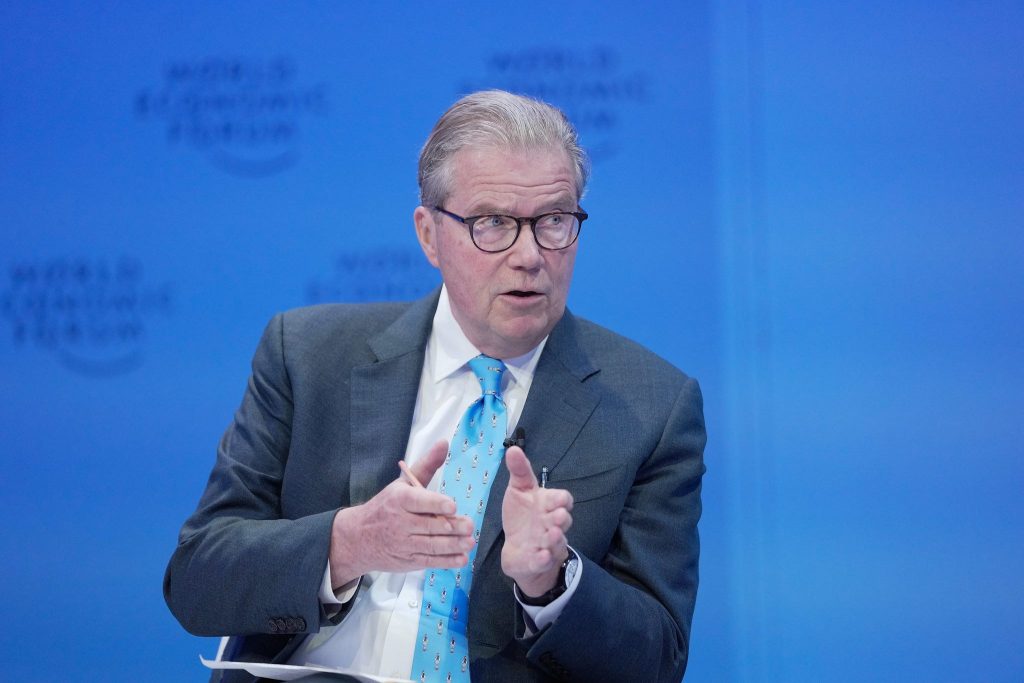- The first day of the World Economic Forum's conference in Davos saw NGOs, pharmaceutical companies, and institutions come together to discuss how to build resilient healthcare.
- Poverty, inaccessible primary healthcare, and a focus on cures over prevention are drivers of ongoing inequity.
- Good governance, early action from researchers, and even AI can help — but without closing economic divides, they can only go so far.
The pandemic shone a light on health inequalities; now it's time to ramp up efforts to close the healthcare gap. So said panel speakers at the World Economic Forum's annual meeting in Davos today.
After a two-year hiatus due to Covid-19, the conference is back. But the pandemic remains high in the minds of event speakers, who asked how the world can adapt policies, partnerships, and practices in order to deliver access to uninterrupted care for all, in the face of future health crises.
During the pandemic, high-income countries were able to vaccinate 75 – 85% of their populations within a year of receiving the first vaccine supplies. But the number of those vaccinated in low-income countries was less than 10%, said Jayasree K. Iyer, CEO of Access to Medicine Foundation, in a panel discussion.
"The Covid-19 pandemic has definitely put a spotlight on a chronic issue in healthcare: inequity of access," she said, adding "and the inequity is huge — we often forget that 80% of the world's population lives in middle and low-income countries."
A lack of access to vaccines and medicines is a persisting issue. But so too is the availability of products such as life-saving medical oxygen, which Iyer calls "a long-neglected issue in the healthcare crisis."
Globally, those living in poverty have always been more at risk of poor health and disease. Inadequate nutrition, poor housing conditions, sanitation, and drinking water all contribute to negative health outcomes. Now, global conflicts and climate change are leading to an increase in migration, which has had a knock-on effect on access to healthcare too.
Finding solutions
When it comes to solutions, those such as Leif Johansson, chairman of the board for AstraZeneca, see a reason for optimism. "I am impressed with how India is beginning to use digital to enhance healthcare, especially when you come out to the rural areas," he told Davos attendees, adding, "over time, artificial intelligence will open up a large amount of low-cost healthcare opportunities."
Chief Minister of Andhra Pradesh, Y S Jaganmohan Reddy, also joined the panel and explained that in his Indian state, new healthcare policies aim not only to make a doctor available for each citizen but also to ensure that those on low incomes have access to insurance.
But more is needed to close the health gap.
A combination of good governance, future-proofing global trade agreements, and a consideration of inequities early on in the pharmaceutical research stages are necessary to ensure resilience against future disease outbreaks.
"We definitely need to see closer collaboration between industry public partners and non-profit organizations, said Iyer. She added that involving patients in product development processes and considering access issues early in the research stage could mitigate future inequities, taking the strain off healthcare systems further down the line.
Above all else, attendees agreed that to scale up and adapt healthcare in a way that ensures equal access for all, the focus must be shifted from curative care — treating an individual who is already sick — to preventative care.
"We are spending 97% of all healthcare on curative mode and only 3% in prevention," said Johansson. "That's absolutely wrong — we all seem to agree on that; every panel I go to, we agree on that, and then we go home and do nothing," he told the crowd.
Beyond health
However, even if panel members 'do something', inequalities in healthcare may persist for as long as global economic disparities do.
"We need debt cancellation," said UN Aid Director, Winnie Byanyima, who took to the microphone during audience question time.
During the pandemic, debt repayments for low-income countries were several times more than that of healthcare spending, she said, with Africa's debt repayments amounting to nine times that than which the continent was able to spend on investing in health.
Without first fixing economic issues, there are no healthcare solutions, she urged the room, saying, "we need to get rules of finance, rules of trade, and rules of tax to work for developing countries if we are going to come out of a health crisis and an economic crisis."
